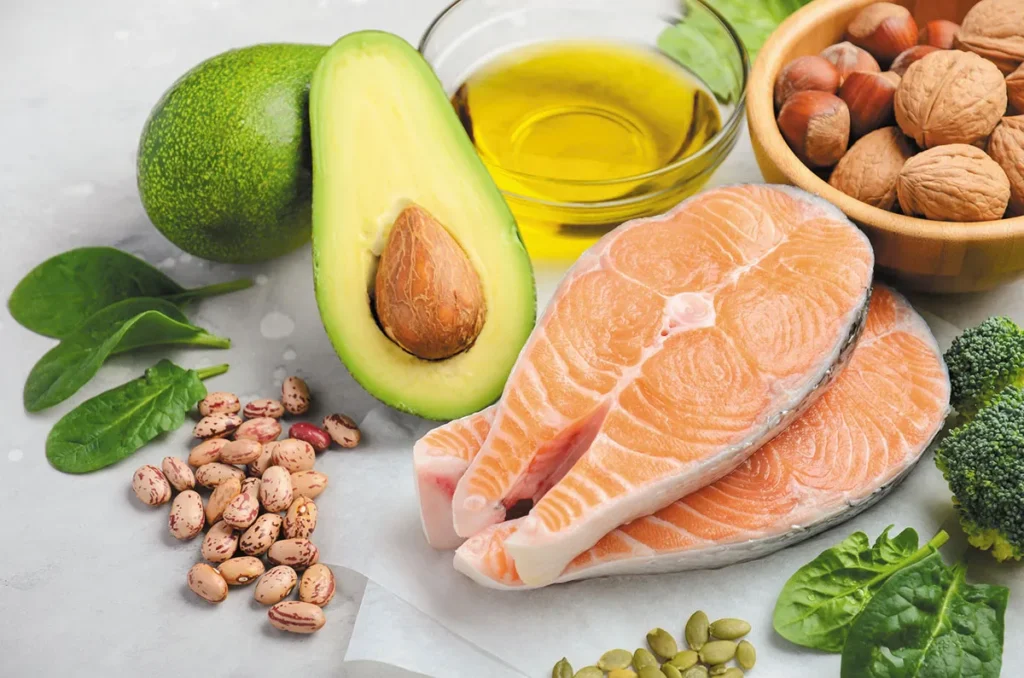Read time : 3.5 minutes

Let’s face it—fat has always been misunderstood. For years, it was painted as the villain behind heart disease, weight gain, and poor health. Then came the low-carb, high-fat diet era, and suddenly fat was back on the menu in full force.
So, where’s the truth in all this? As always, somewhere in the middle.
Fat Isn’t the Enemy—But Not All Fats Deserve a Free Pass
Despite what old-school diet culture may have taught us, fat is not inherently bad. In fact, your body relies on it for vital processes like:
- Hormone production
- Brain function
- Vitamin absorption (especially A, D, E, and K)
- Supporting cell structure and energy levels
But here’s the real deal: the type of fat you consume plays a bigger role in your health than the total amount.
Let’s Talk About the Good Guys: Unsaturated Fats
If you’re looking to protect your heart, support your brain, and keep inflammation low, unsaturated fats are your best friends. These include:
Monounsaturated fats, found in:
- Groundnut (peanut) oil
- Avocados
- Olives
- Almonds, cashews, and other nuts
- Polyunsaturated fats, found in:
- Mackerel, sardines, salmon
- Sunflower oil, flaxseed oil
- Walnuts, chia seeds
Multiple studies—including a comprehensive analysis in the New England Journal of Medicine—confirm that replacing saturated fats with unsaturated fats can reduce the risk of cardiovascular disease by over 25%.
These fats help lower LDL (bad) cholesterol, improve HDL (good) cholesterol, and reduce blood pressure markers—all essential for long-term heart health.
What About Saturated Fats?
Saturated fats are a bit more controversial. They’re found in:
- Fatty cuts of meat
- Coconut oil
- Butter
- Palm oil
- Full-fat dairy
Too much of these fats has been shown to raise LDL cholesterol, which increases the risk of heart disease over time. That’s why major health organizations—including the American Heart Association and World Health Organization—recommend keeping saturated fats to no more than 10% of daily calories, or even 7% if you’re at risk of heart-related conditions.
That said, not every bit of saturated fat needs to be eliminated. It’s about balance—not extremes.
The True Villain? Trans Fats
If there’s one type of fat you should completely avoid, it’s trans fats.
These are found in:
- Fried snacks made with reused oil
- Commercial margarine
- Packaged baked goods
- Certain street foods like fried pies and donuts
How Much Fat Should You Eat Daily?

Instead of counting grams or calories obsessively, a good general tip is to:
- Include 2 tablespoons of healthy fats daily from nuts, seeds, fish, or oils
- Focus on cooking methods—grilling, steaming, and light sautéing are better than deep-frying
- Choose oils wisely—groundnut, olive, and sunflower oils are better choices than palm or coconut oil
For example, you might sauté vegetables in groundnut oil, enjoy a handful of roasted nuts as a snack, or drizzle olive oil on a fresh salad.
Final Word: Don’t Fear Fat—Understand It
It’s not about cutting fat from your life; it’s about making informed swaps and being mindful of your choices. When you prioritize unsaturated fats, limit saturated fats, and eliminate trans fats, you’re not just eating for taste—you’re eating for long-term vitality.
- Small steps matter:
Swap deep-fried snacks for roasted or grilled versions - Cook with heart-healthy oils
- Add fatty fish like mackerel to your weekly meals
- Snack on seeds or nuts instead of pastries
By understanding fat—not fearing it—you gain the power to nourish your body, protect your heart, and enjoy your meals without guilt.
Meet Your Ai Personal Trainer
👉Personalized workouts. Progress tracking. Real results.
MyHealthCop AI is your pocket trainer — always ready, always smart.
Download the App to Take your free Ai health assessment Today [Take Assessment]
RD, LD Julius Sammah
MyHealthCop Certified Dietician